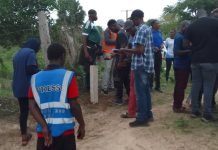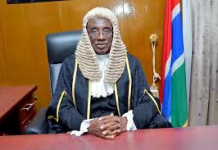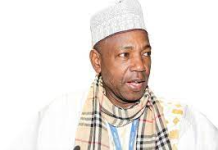By Assan Bah
According to a news release from the World Bank Washington Office dated April 17th2024, the World Bank Group and Africa Development Bank Group are partnering to provide at least 300 million people in Africa with electricity access by 2030.
The bank said this partnership could give access to electricity to half of the number of people in Africa living without electricity.
A successful development endeavor is predicated on having access to energy, which is a fundamental human right. The statement said over 600 million Africans do not have access to electricity at the moment, which is seriously impeding productivity, digital inclusiveness, health care and job creation. The initiative, which aims to significantly improve the livelihoods of 300 million beneficiaries states that the World Bank Group will work to connect 250 million people to electricity through distributed renewable energy systems or the distribution grid, and the ADB will support an additional 50 million people.
Ajay Banga, World Bank Group President said electricity access is the bedrock of all development and is a critical ingredient for economic growth and essential for job creation on a larger scale.
‘‘Our aspiration will only be realized with partnership and ambition. We will need policy action from governments, financing from multilateral development banks, and private sector investment to see this through.
“This partnership is a demonstration of the determination of the World Bank Group and the African Development Bank Group to be bolder, bigger and better in tackling one of the most pressing challenges in Africa. The initiative is the most recent manifestation of the World Bank Group’s commitment to become more impact-oriented and is the by-product of a concerted work plan to build a better bank. It is aided by a constellation of regional energy programs that will now be aligned toward this common goal,” the Banks assured.
They, however, implore governments to put in place measures to attract private investment.
“For the World Bank Group to connect 250 million people, $30 billion of public sector investment will be needed, of which IDA, the World Bank’s concessional arm for low-income countries, will be critical. In addition, governments will need to put in place policies to attract private investment, and reform their utilities so they are financially sound and efficient with tariff mechanisms that protect the poor,” it added.
“Connecting 250 million people to electricity would open private sector investment opportunities in distributed renewable energy alone worth $9 billion. Beyond that, there would be substantial opportunities for private investments in grid-connected renewable energy needed to power economies for growth.”





















